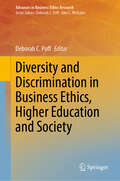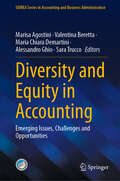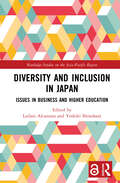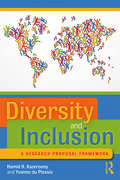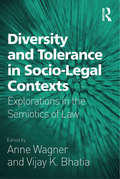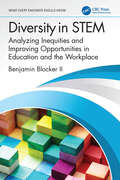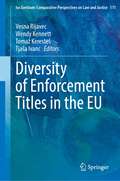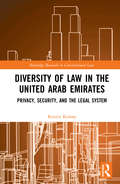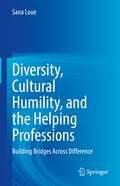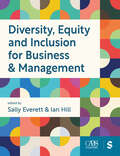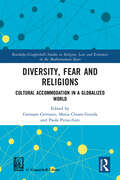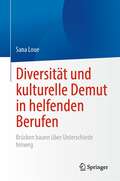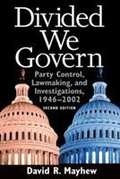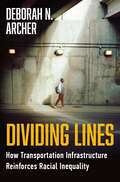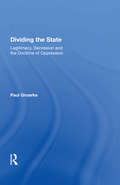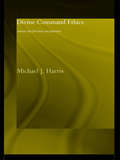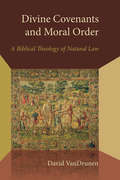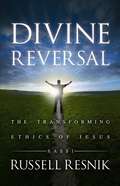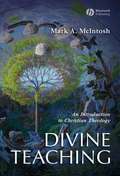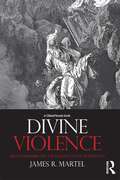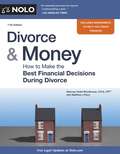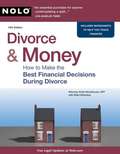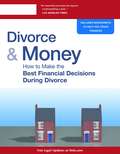- Table View
- List View
Diversity and Discrimination in Business Ethics, Higher Education and Society (Advances in Business Ethics Research #9)
by Deborah C. PoffThis book engages the reader in a critical and necessary examination of the nature and range of behaviours that comprise diversity and discrimination in business and society. Discrimination and diversity are vitally important topics in the workplace as the manifestation of discriminatory practices leads to disfunction and a lack of effectiveness and efficiency in workplace settings. The chapters in this text not only conceptualize and clarify the meanings of diversity and discrimination but, as well, nicely unpack various debilitating features of the phenomenon and its various practices. This book is of particular interest to faculty teaching in schools of business, as well as researchers in business ethics and business management. As such, it provides an excellent venue for the exploration of the various negative impacts of diversity and discrimination.
Diversity and Equity in Accounting: Emerging Issues, Challenges and Opportunities (SIDREA Series in Accounting and Business Administration)
by Sara Trucco Alessandro Ghio Marisa Agostini Valentina Beretta Maria Chiara DemartiniThis book discusses the role of diversity and equity in accounting, management control, governance, and auditing. These issues are increasingly relevant in both national and international debates. The volume analyzes recent literature and examines the role of diversity and equity as fundamental elements of corporate culture, determinants of the corporate growth model, and social justice. After framing the topic theoretically, the book conducts field analyses, collecting both secondary and primary data through qualitative and quantitative research methods, such as interviews, surveys, business case analyses, and documentary analyses of corporate practices on diversity and equity. The book provides an in-depth understanding and offers practical insights into the best (and worst) practices in diversity and equity within these fields. It will appeal to researchers in the social accounting domain and professionals seeking to integrate diversity and equity into business practices. The results presented are also relevant to policymakers who need to understand how to incentivize or regulate practices concerning diversity within corporate contexts.
Diversity and Inclusion in Japan: Issues in Business and Higher Education (Routledge Studies on the Asia-Pacific Region)
by Lailani Alcantara and Yoshiki ShinoharaAlcantara, Shinohara, and their contributors evaluate the current state of diversity and inclusion (D&I) within business and higher education in Japan, and the importance of D&I to the growth of Japan’s economy and the enrichment of its society. Japan is widely understood to be a homogenous and patriarchal society, and while this is changing and was never wholly accurate, it certainly faces challenges in becoming more diverse and inclusive, particularly in its business and higher educational cultures. Grounded in research and offering best practices, the chapters in this book analyze critical issues relating to D&I in Japan at the individual, organizational, and industry levels. They present both a longitudinal analysis of the evolution and performance outcomes of D&I policies in Japanese corporations across industries, and rich studies of different underrepresented groups in Japan. These groups include immigrants, women, and people with disabilities. The contributors prescribe policies for promoting D&I in higher education, within businesses and at the governmental level. This book is an essential contribution to D&I discourse in the Japanese context that will be of great value to scholars of Japanese society and business, and an important extended case study for those looking at D&I more widely.
Diversity and Inclusion: A Research Proposal Framework
by Hamid H. Kazeroony Yvonne du PlessisAimed at assisting doctoral candidates and early-career researchers and their supervisors globally, this book is the first of its type to address the challenges faced by students when proposing new programs of research in the disciplines of gender, race, identity, indigeneity, and diversity within management and business. The problems researchers face derive from a lack of familiarity with the needed alignment of the methodology, conceptual framework, and the nature of epistemologies used in creating a coherent proposal. This results in project delays and unnecessary time in review as doctoral students and committees attempt to provide the required alignment. Essential reading for students and faculty engaged in these fields of study, the book provides a practical guide on how to navigate through these challenges and to arrive at a workable proposal that meets the requirements of the academy. To assist doctoral students in conducting their research, the book provides narratives that illustrate the complexities of researching gender, race, identity, indigeneity, and diversity in broad terms. It explains the importance of such research in creating positive social change and helping students identify the appropriate conceptual framework, align the problem statement with a purpose, construct the research question and the nature of the study, and identify the correct method to conduct the research. An essential guide for students and doctoral researchers, this book explains the dominant and marginalized epistemological orientations to acquaint doctoral researchers with the effects of their selections on the outcomes of their research. It provides guidance as to the appropriateness of quantitative or qualitative methods based on the selected epistemology and the problem statement.
Diversity and Tolerance in Socio-Legal Contexts: Explorations in the Semiotics of Law
by Vijay K. BhatiaWhy is there so much resistance to recent issues of tolerance and diversity? Despite efforts of the international community to encourage open-mindedness, recent attempts at international, political and economic integration have shown that religious, cultural and ethnic tolerance and diversity remain under threat. The contributions in the volume reflect the growing importance of these issues and why resistance is so widespread. Part I addresses the relationship between the language of law and its power, whilst Part II explores the interplay of tolerance and diversity under visual, legislative and interpretative perspectives. This collection as a whole offers a combination of varied perspectives on the analysis, application and exploitation of laws and will be a valuable source of information for those interested in the general area of language and the law.
Diversity in Intellectual Property
by Calboli, Irene and Ragavan, Srividhya Irene Calboli Srividhya RagavanThis book aims to create an interface between intellectual property and diversity - including cultural, biological, religious, racial, and gender-based diversity. While acknowledging that the historical rationale for intellectual property protection is based on theories of utilitarian incentives and property rights, the authors of this volume assert that the current intellectual property framework is not incompatible with including diversity as part of its objectives. Through its various themes, this book delves into the debate of whether such inclusion can be made possible and how intellectual property norms could be effectively used to protect and promote diversity. In this volume, leading scholars address ongoing regional, national, and international debates within the contexts of diversity, the existing legal framework, and the broader political and economic climate. The authors tackle such wide-ranging topics as the prohibition against trademarking slurs and concepts of intellectual property in ancient Indian texts.
Diversity in STEM: Analyzing Inequities and Improving Opportunities in Education and the Workplace (What Every Engineer Should Know)
by Benjamin Blocker IIDiversity in STEM: Analyzing Inequities and Improving Opportunities in Education and the Workplace offers a survey of diversity in the broad field of Science, Technology, Engineering, and Mathematics (STEM) and provides potential solutions to improve outcomes in education, industry, and society. Offering a U.S.-based point of view, but with globally applicable concepts around race, gender, culture, politics, and socioeconomics, the book identifies where issues around diversity in STEM exist, how they were created, and how these issues are being addressed in STEM education and the STEM workforce.Features: Identifies conditions and causes of inequities from a societal perspective. Offers guidelines and solutions to identify and address cultural gaps in STEM. Covers STEM initiatives implemented at the K-12, college, and vocational levels and how they are beginning to alter the STEM landscape. Illustrates the benefits of fostering and maintaining a diverse, equitable, and inclusive workforce. Explores best practices used by companies and organizations to recruit, support, and develop diverse talent and strategies to continually evolve. Guides and empowers STEM professionals to seek out organizations whose values are aligned with their own. Providing an analytical and constructively practical viewpoint, the authors offer readers across the sciences, engineering, and medicine, as well as policymakers, the opportunity to consider why diversity and equity in STEM matter and how to apply best practices that support inclusivity to ensure successful outcomes for individuals, organizations, and society.
Diversity of Enforcement Titles in the EU (Ius Gentium: Comparative Perspectives on Law and Justice #111)
by Vesna Rijavec Wendy Kennett Tomaž Keresteš Tjaša IvancThis book examines the diversity of enforcement titles in cross-border debt collection, focusing on the types, structure, contents and effects of enforcement titles. It offers a comprehensive overview of judgments, court settlements and authentic instruments from a variety of EU Member States. It primarily employs the comparative legal method to draw conclusions on commonalities and differences, as well as prospects for future approximation of laws. The premise of the research is rooted in the finding that national authorities of EU Member States continue to treat enforcement titles from other Member States with reservations and mistrust despite being committed to the principle of mutual trust. The book identifies the issues of mistrust stemming from the diversity of enforcement titles. The research is based on a rich database of national reports compiled during the course of several large-scale EU Justice Projects. Divided into five parts, the book offers first some general considerations and presents attempts at a systemisation of enforcement titles. The following parts are then devoted to more specialised approaches toward the different types of enforcement titles. However, the connecting line between all parts of the book are the considerations of cross-border enforcement in the EU (and in a limited manner with third States). Herein, research also addresses critical factors regarding the free movement of judgments in the EU, including those of lis pendens and related actions. This book provides a valuable contribution to the Theory of European Civil Procedure. Since it is based on a comparative approach and employs both empirical and doctrinal viewpoints, it should also greatly benefit practitioners involved in cross-border dispute resolution. Overall, the findings should be of interest to a broad audience, including policymakers, judges, practitioners and scholars.
Diversity of Law in the United Arab Emirates: Privacy, Security, and the Legal System (Routledge Research in Constitutional Law)
by Kristin KamøyThis book examines the law and its practice in the United Arab Emirates (UAE). The objective is to understand the logic of the legal system in the UAE through a rounded analysis of its laws in context. It thus presents an understanding of the system on its own terms beyond the accepted Western model. The book shows how the Emirati law differs from the conventional rule of law. The first section of the book deals with the imperial, international, and cultural background of the Emirati legal system and its influences on some of the elements of the legal system today. It maps the state’s international legal obligations according to core human rights treaties showing how universal interpretations of rights may differ from Emirati interpretations of rights. This logic is further illustrated through an overview of the legal system, in federal, local, and free zones and how the UAE’s diversity of legal sources from Islamic and colonial law provides legal adaptability. The second section of the book deals mainly with the contemporary system of the rule of law in the UAE but at times makes a detour to the British administration to show how imperial execution of power during the British administration created forerunners visible today. Finally, the debut of the UAE on the international scene contributed to an interest in human rights investigations, having manifestations in UAE law. The work will be a valuable resource for researchers and academics working in the areas of Comparative Constitutional Law, Legal Anthropology, Legal Pluralism, and Middle Eastern Studies.
Diversity, Cultural Humility, and the Helping Professions: Building Bridges Across Difference
by Sana LoueToo often, cultural competence training has led to the inadvertent marginalization of some individuals and groups and the reinforcement of existing stereotypes. This text explores the concept of cultural humility, which offers an exciting way forward for those engaged in the helping professions. In contrast to cultural competence, cultural humility challenges individuals to embark on a lifelong course of self-examination and transformational learning that will enable them to engage more authentically with clients, patients, colleagues, and others. The book traces our understanding of and responses to diversity and inclusion over time with a focus on the United States.Topics explored include:Us and Them: The Construction of CategoriesCultural Competence as an Approach to Understanding DifferenceTransformational Learning Through Cultural HumilityFostering Cultural Humility in the Institutional/Organizational ContextCultural Humility and the Helping ProfessionalThe book presents examples that illustrate how the concept of cultural humility can be implemented on an institutional level and in the context of individual-level interactions, such as those between a healthcare provider or therapist and a client.Diversity, Cultural Humility, and the Helping Professions: Building Bridges Across Difference is essential reading for the health professions (nursing, medicine), social work, psychology, art therapy, and other helping professions.
Diversity, Equity and Inclusion for Business & Management
by Ian Hill Sally EverettDiversity, Equity and Inclusion for Business & Management is a comprehensive and accessible guide to the evolving landscape of DEI in the discipline. Developed in collaboration with the Chartered Association of Business Schools and written by experts in their fields, this book offers a unique approach, with discipline-focussed chapters that cover Strategy, Leadership, Organisational Behaviour, Marketing, Accounting, Finance and more. As you read about how issues of social justice, diversity, and inclusion relate to your studies and future careers, you will be supported by a range of learning features, including global case studies, critical reflections, and practice questions. This book is essential reading for students of business and management taking modules in DEI and diversity management, as well as those who are interested in responsible business practice. Sally Everett is Professor of Business Education and Vice Dean (Education) at King’s Business School, King’s College London Ian Hill is a Lecturer in Work and Organisations (Education) at King’s Business School, King’s College London
Diversity, Equity and Inclusion for Business & Management
by Ian Hill Sally EverettDiversity, Equity and Inclusion for Business & Management is a comprehensive and accessible guide to the evolving landscape of DEI in the discipline. Developed in collaboration with the Chartered Association of Business Schools and written by experts in their fields, this book offers a unique approach, with discipline-focussed chapters that cover Strategy, Leadership, Organisational Behaviour, Marketing, Accounting, Finance and more. As you read about how issues of social justice, diversity, and inclusion relate to your studies and future careers, you will be supported by a range of learning features, including global case studies, critical reflections, and practice questions. This book is essential reading for students of business and management taking modules in DEI and diversity management, as well as those who are interested in responsible business practice. Sally Everett is Professor of Business Education and Vice Dean (Education) at King’s Business School, King’s College London Ian Hill is a Lecturer in Work and Organisations (Education) at King’s Business School, King’s College London
Diversity, Fear and Religions: Cultural Accommodation in a Globalized World (Routledge-Giappichelli Studies in Religion, Law and Economics in the Mediterranean Space)
by Gennaro Gervasio Maria Chiara Giorda Paola PerucchiniThis book investigates ways ‘the Other’ can be both a cause of and an answer to religious and cultural fears. The multi-layered question of cultural and religious diversity has received some attention recently both in academic and policy circles. The authors of this work address this issue by focusing on fears and phobias, and the ways they are historically and sociologically produced and reproduced in a Global Era. The volume presents examples of fears related to different cultures and religions from a multidisciplinary perspective. Some of these have been provoked or sublimated by religious fundamentalisms, and a double ignorance, that is, ignorance of and about fundamentalisms, which have helped feed these collective concerns. Through a sample of stereotypes, mystifications and simplifications, the authors look at Islam as a focal lens for showing the current power of globalized collective fears. The collection also explores possible cultural antidotes to these phobias, such as the need for awareness and familiarity with diversities, based on an education accepting of interculturality and plural citizenship. The book will be essential reading for academics, researchers and policy-makers working in the areas of Intercultural Pedagogy, History, Anthropology and Sociology of Religions, Law and Religion, Contemporary Islam, Migration Studies, Interreligious Dialogue, and Ethnography.
Diversität und kulturelle Demut in helfenden Berufen: Brücken bauen über Unterschiede hinweg
by Sana LoueAllzu oft hat die Ausbildung in kultureller Kompetenz zu einer unbeabsichtigten Ausgrenzung einiger Personen und Gruppen und zur Verstärkung bestehender Stereotypen geführt. Dieser Text erforscht das Konzept der kulturellen Demut, das einen spannenden Weg nach vorne für diejenigen bietet, die in helfenden Berufen tätig sind. Im Gegensatz zu kultureller Kompetenz fordert kulturelle Demut den Einzelnen heraus, sich auf einen lebenslangen Kurs der Selbstprüfung und des transformativen Lernens einzulassen, der es ihm ermöglicht, authentischer mit Klienten, Patienten, Kollegen und anderen umzugehen. Das Buch zeichnet unser Verständnis von und unsere Reaktionen auf Vielfalt und Integration im Laufe der Zeit nach, wobei der Schwerpunkt auf den Vereinigten Staaten liegt.Zu den untersuchten Themen gehören:Wir und die Anderen: Die Konstruktion von KategorienKulturelle Kompetenz als Ansatz zum Verstehen von UnterschiedenTransformatives Lernen durch kulturelle BescheidenheitFörderung von kultureller Demut im institutionellen/organisatorischen KontextKulturelle Demut und die helfende FachkraftDas Buch zeigt anhand von Beispielen, wie das Konzept der kulturellen Bescheidenheit auf institutioneller Ebene und im Kontext individueller Interaktionen, z. B. zwischen einem Gesundheitsdienstleister oder Therapeuten und einem Klienten, umgesetzt werden kann.Diversität, kulturelle Demut und die helfenden Berufe: Building Bridges Across Difference" ist eine unverzichtbare Lektüre für Gesundheitsberufe (Krankenpflege, Medizin), Sozialarbeit, Psychologie, Kunsttherapie und andere helfende Berufe.
Divided We Govern: Party Control, Lawmaking, And Investigations, 1946-2002
by David MayhewIn this prize-winning book, a renowned political scientist debunks the commonly held myth that the American national government functions effectively only when one political party controls the presidency and Congress. For this new edition, David R. Mayhew has provided a new Preface, a new appendix, and a new concluding chapter that brings the historical narrative up to date. "Important, accessible, and compelling, David Mayhew’s second edition of Divided We Govern takes the best book on the history of US lawmaking and--against all odds--makes it better.”--Keith Krehbiel, Stanford University "In this welcome updating of his agenda-setting classic, David Mayhew cogently defends his original methodology and finds that divided government remains no less productive of important legislation than unified government, although it is now (thanks mainly to Clinton’s impeachment) strongly associated with prominent investigations of the executive branch. Written with Mayhew’s usual clarity and grace, this is a book to be enjoyed by beginning and veteran students of Congress alike.”--Gary Jacobson From reviews of the first edition: "First-rate. . . . Mayhew’s tabulations and analysis are, quite simply, unimpeachable."--Morris Fiorina, Washington Monthly "Will stand for years as a classic."--L. Sandy Maisel, Political Science Quarterly "Should be read by every student of American politics."--Gillian Peele, Times Higher Education Supplement
Dividing Lines: How Transportation Infrastructure Reinforces Racial Inequality
by Deborah N. ArcherFrom an eminent legal scholar and the president of the ACLU, an essential account of how transportation infrastructure—from highways and roads to sidewalks and buses—became a means of protecting segregation and inequality after the fall of Jim Crow. Our nation’s transportation system is crumbling: highways are collapsing, roads are pockmarked, and commuter trains are unreliable. But as acclaimed scholar and ACLU president Deborah Archer warns in Dividing Lines, before we can think about rebuilding and repairing, we must consider the role race has played in transportation infrastructure, from the early twentieth century and into the present day. As Archer demonstrates, the success of the Civil Rights movement and the fall of Jim Crow in the 1960s did not mean the end of segregation. The status quo would not be so easily dismantled. With state-sanctioned racism no longer legal, officials across the country—not just in the South—turned to transportation infrastructure to keep Americans divided. A wealthy white neighborhood could no longer be "protected" by racial covenants and segregated shops, but a multilane road, with no pedestrian crossings, could be built along its border to make it difficult for people from a lower-income community to visit. Highways could not be routed through Black neighborhoods based on the race of their residents, but those neighborhoods’ lower property values—a legacy of racial exclusion—could justify their destruction. A new suburb could not be for "whites only," but planners could refuse to extend sidewalks from Black communities into white ones. Drawing on a wealth of sources, including interviews with people who now live in the shadow of highways and other major infrastructure projects, Archer presents a sweeping, national account—from Atlanta and Houston to Indianapolis and New York City—of our persistent divisions. With immense authority, she examines the limits of current Civil Rights laws, which can be used against overtly racist officials but are less effective in addressing deeper, more enduring, structural challenges. But Archer remains hopeful, and in the final count describes what a just system would look like and how we can achieve it.
Dividing the State: Legitimacy, Secession and the Doctrine of Oppression (Applied Legal Philosophy Ser.)
by Paul GroarkeThe events of recent history affirm the urgent need for a satisfactory definition of the conditions under which a minority within a state has the legal right to secede. Although the concept of sovereignty has been progressively weakened, it still presents the major theoretical difficulty in this area. There is currently no source of international law that would give a legal body like a court the authority to recognize the division of an oppressive or illegitimate state into separate legal entities. This book accordingly argues for a global system of justice based on a domestic model of compulsory law. It considers some of the technical, procedural and evidentiary issues that would arise in instituting such a regime, and develops the conceptual framework essential for the provision of legal remedies for gross violations of our fundamental human rights.
Divine Command Ethics: Jewish and Christian Perspectives (Philosophical Ideas in Debate)
by Michael J. HarrisThe central aim of this book is to attempt to determine the response of the classic texts of Jewish traditions to the famous dilemma posed in Plato's Euthyphro: Does God freely determine morality, or is morality independent of God? The author argues that the picture that emerges from Jewish texts is significantly more complex and nuanced than most of the contemporary Jewish philosophical literature is prepared to concede. While providing an extensive discussion of the perspective of Jewish tradition on divine command ethics, this book develops a position that is distinct from and critical of other views that have recently been advanced in Jewish scholarship. At the same time, the book provides a substantial analysis of some Christian perspectives on divine command ethics. Relevant biblical, rabbinic and later Jewish texts are discussed, as well as some of the relevant views that have been taken in philosophical literature and in Christian and Jewish thought.
Divine Covenants and Moral Order: A Biblical Theology of Natural Law (Emory University Studies in Law and Religion)
by David VanDrunenThis book addresses the old question of natural law in its contemporary context. David VanDrunen draws on both his Reformed theological heritage and the broader Christian natural law tradition to develop a constructive theology of natural law through a thorough study of Scripture.The biblical covenants organize VanDrunen's study. Part 1 addresses the covenant of creation and the covenant with Noah, exploring how these covenants provide a foundation for understanding God's governance of the whole world under the natural law. Part 2 treats the redemptive covenants that God established with Abraham, Israel, and the New Testament church and explores the obligations of God's people to natural law within these covenant relationships.In the concluding chapter of Divine Covenants and Moral Order VanDrunen reflects on the need for a solid theology of natural law and the importance of natural law for the Christian's life in the public square.]>
Divine Reversal: The Transforming Ethics of Jesus
by Rabbi Russell ResnikIn the Old Testament, God often reversed the plans of man. Yeshua's ethics continue this theme. Following his ethics leads to true happiness, forgiveness, reconciliation, fidelity and love.
Divine Teaching: An Introduction to Christian Theology (Blackwell Guides To Theology Ser.)
by Mark A. McIntoshThis innovative work is an introduction to Christian theology with a difference. Not only does it interpret, with clarity and energy, fundamental Christian beliefs but it also shows how and why these beliefs arose, promoting an understanding of theological reflection that encourages readers to think theologically themselves. From Irenaeus and Aquinas to Girard, from Augustine to Zizioulas and contemporary feminist thought, Divine Teaching explores the ways in which major thinkers in the Christian tradition have shaped theology through the wide variety of their encounters with God. It makes theological study adventurous and interactive, not necessarily requiring a faith commitment from all, but allowing readers a thoughtful involvement in the subject that takes seriously the Christian vision of God as the ultimate teacher of theology. Divine Teaching: An Introduction to Christian Theology is an imaginative and lively analysis of the Christian way of thinking, offering vivid and informing insight into the history and practice of Christian theology.
Divine Violence: Walter Benjamin and the Eschatology of Sovereignty
by James R. MartelDivine Violence looks at the question of political theology and its connection to sovereignty. It argues that the practice of sovereignty reflects a Christian eschatology, one that proves very hard to overcome even by left thinkers, such as Arendt and Derrida, who are very critical of it. These authors fall into a trap described by Carl Schmitt whereby one is given a (false) choice between anarchy and sovereignty, both of which are bound within—and return us to—the same eschatological envelope. In Divine Violence, the author argues that Benjamin supplies the correct political theology to help these thinkers. He shows how to avoid trying to get rid of sovereignty (the "anarchist move" that Schmitt tells us forces us to "decide against the decision") and instead to seek to de-center and dislocate sovereignty so that it’s mythological function is disturbed. He does this with the aid of divine violence, a messianic force that comes into the world to undo its own mythology, leaving nothing in its wake. Such a move clears the myths of sovereignty away, turning us to our own responsibility in the process. In that way, the author argues,Benjamin succeeds in producing an anarchism that is not bound by Schmitt’s trap but which is sustained even while we remain dazzled by the myths of sovereignty that structure our world. Divine Violence will be of interest to students of political theory, to those with an interest in political theology, philosophy and deconstruction, and to those who are interested in thinking about some of the dilemmas that the ‘left’ finds itself in today.
Divorce & Money
by Dale Fetherling Violet WoodhouseDivorcing? Get everything you need to split assets and debts as fairly as possible. When you're going through divorce, you have to make an overwhelming number of financial decisions. Should you sell the house? What happens to retirement benefits? How will you handle taxes? Full of sensitive and practical advice, Divorce & Money guides you through the complex process of making these important, and sometimes life altering financial decisions. It covers how to: - decide whether to keep or sell the house - protect yourself against misuse of joint accounts and credit cards - avoid tax problems - handle alimony and child support - divide debts fairly - avoid hasty decisions that could hurt you financially - reduce risks to your investments - understand how a court evaluates assets - gain financial stability as a single person The fully updated edition provides the latest tax figures and data, plus new information on dealing with credit problems, bankruptcy, foreclosure, and during or after divorce.
Divorce & Money
by Violet WoodhouseDivorcing? Get everything you need to split assets and debts as fairly as possible. When you're going through divorce, you have to make an overwhelming number of financial decisions. Should you sell the house? What happens to retirement benefits? How will you handle taxes? Full of sensitive and practical advice, Divorce & Money guides you through the process of making these important, and sometimes life-altering decisions. It covers how to: decide whether to keep or sell the house protect yourself against misuse of joint accounts and credit cards avoid tax problems handle alimony and child support divide debts fairly avoid hasty decisions that could hurt you financially reduce risks to your investments understand how a court evaluates assets gain financial stability as a single person The fully updated 10th edition provides the latest tax figures and data, plus new information on dealing with credit problems, bankruptcy, foreclosure, and the other varied effects of divorcing in a down economy.
Divorce & Money: How to Make the Best Financial Decisions During Divorce
by Lina Guillen Violet Woodhouse Attorney, CFLSAll the information you need to split assets, easily and fairly. Especially in uncertain economic times, divorce isn’t simple. Turn to Divorce & Money, the acclaimed guide to evaluating and dividing assets during divorce, to avoid making financial mistakes that could affect you for the rest of your life. Learn how to: understand how a court evaluates assets determine the value of real estate and other assets negotiate a comprehensive settlement decide whether to keep or sell the house agree on fair child support understand how much, if any, alimony is appropriate divide debts fairly divide retirement benefits,and achieve financial stability after divorce. Divorce & Money shows you how to take control of your financial life during and after divorce—and avoid costly court fights.
